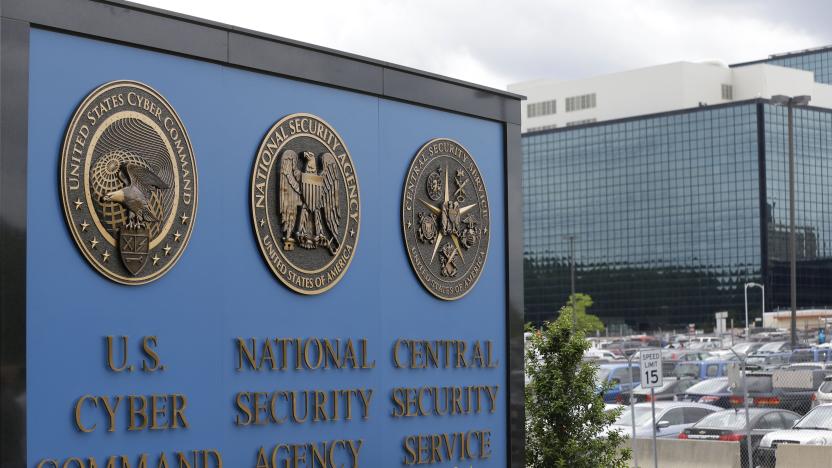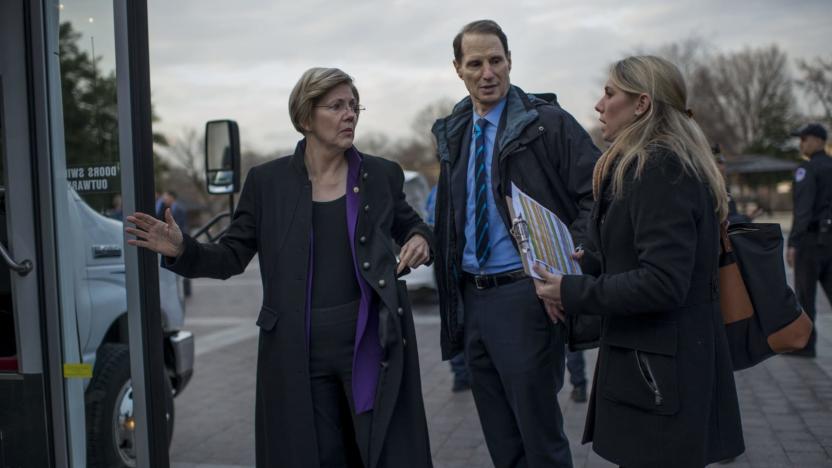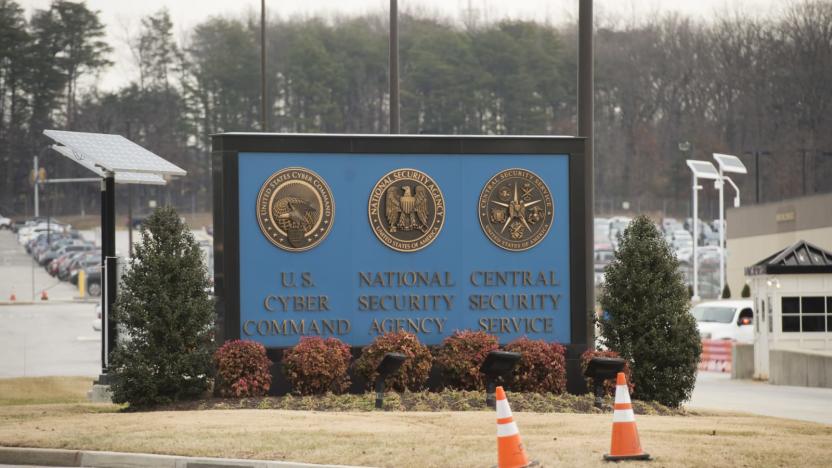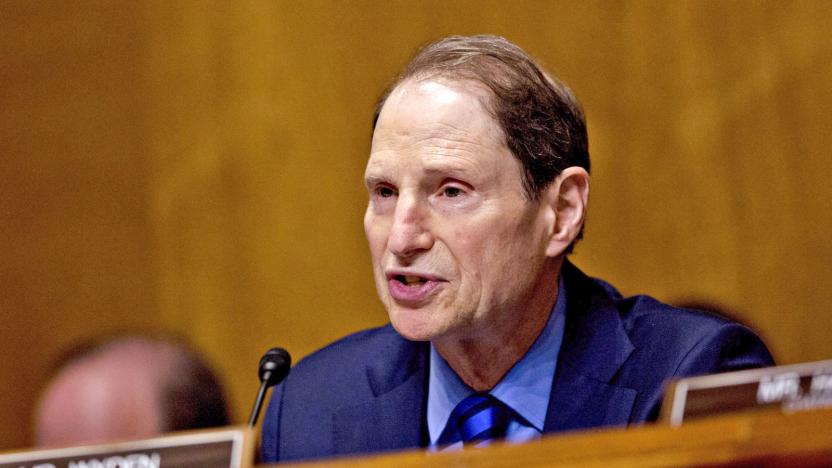ron wyden
Latest

NSA admits to buying Americans’ web browsing data from brokers without warrants
The National Security Agency's director has confirmed that the agency purchases Americans' internet browsing data from commercial brokers without first obtaining warrants.

Apple now needs a judge's order to hand over push notification records
Law enforcement will now need a judge's consent in order to obtain push notification data from Apple.

US law enforcement has warrantless access to many money transfers
US law enforcement can access details of some international money transfers without a warrant.

Senate bill aims to restore net neutrality, including throttling safeguards
Senators have introduced a bill that would let the FCC reinstate net neutrality.

Senate considers ban on data brokers selling health and location info
Senators are introducing a bill that would ban brokers from selling your health and location data in most cases.

Oregon is shutting down its controversial child welfare AI in June
Oregon's child welfare agency will shutter its controversial child abuse screening algorithm in June.

Sen. Wyden urges government to boost broadband speed targets
'Miserly speeds and data caps are holding back' telehealth and remote work and schooling, Wyden wrote.

Senators want to block government agencies from buying Clearview AI data
A bipartisan bill would also ban purchases of location data without a warrant.

US COVID-19 relief bill includes $7 billion for broadband internet access
Congress' COVID-19 relief bill includes $7 billion for broadband internet, including $3.2 billion to bring access to low-income families.

Secret Service bought location data pulled from common apps
The US Secret Service paid a private company for access to location data generated by common smartphone apps.

Saudi Arabia may be spying on its citizens via US mobile networks
Data shared by a whistleblower suggests Saudi Arabia may be using a weakness in mobile telecom networks to track its citizens in the US, The Guardian reports. The data shows that over a four-month period, Saudi Arabia's three biggest mobile phone companies sent 2.3 million requests for Provider Subscriber Information (PSI). Normally, that data is used to help foreign operators register roaming charges, but the high volume of requests could also give the Saudi telecoms enough info to track users within hundreds of meters of accuracy.

Bipartisan bill would scale back key section of the Patriot Act
Oregon Senator Ron Wyden has introduced new legislation that would attempt to reform Section 215 of the Patriot Act definitively. Democratic and Republican lawmakers in both the House and Senate have co-sponsored Wyden's Safeguarding Americans' Private Records Act.

Senator asks FTC to investigate questionable ad blocking practices (updated)
You're not the only one concerned that ad blocking companies may have taken customers for a ride by whitelisting advertisers willing to pay. Senator Ron Wyden has sent a letter to the FTC asking the regulator to investigate ad blocking companies over "unfair, deceptive and anti-competitive" practices, including implementing whitelists without giving users a choice. When AdBlock was sold to an unnamed buyer and joined Adblock Plus' Acceptable Ads whitelist program, it "likely" broke federal law by automatically changing privacy terms without obtaining the necessary explicit permission.

Congress worries sale of .org could harm non-profits
Control over the .org internet domain is close to changing hands, and American politicians aren't happy. Senators Richard Blumenthal, Elizabeth Warren and Ron Wyden have joined Rep. Anna Eshoo in sending a letter demanding answers over the Internet Society's sale of .org and the Public Interest Registry (which manages the domain) to a private equity firm, Ethos Capital. The congresspeople want everyone involved to both outline how transparent they'll be as well as assurances that they'll keep the domain accessible, neutral and safe for non-profits.

The NSA says it stopped tracking cellphone locations without a warrant
Last year the Supreme Court ruled, in a 5-4 decision, that a search warrant is required for law enforcement to perform cellphone tower searches to track someone's location. The Daily Beast reported on a letter sent by the Office of the Director of National Intelligence (ODNI) to Senator Ron Wyden affirming that ever since that Carpenter decision, the "Intelligence community" has not sought cell-site location data or GPS records without a warrant. It had been doing that, claiming authority under the Title V of the Foreign Intelligence Surveillance Act (FISA) / Section 215 of the Patriot Act. However Section 215 of the Patriot Act is set to expire next month, and in the letter (PDF), the assistant director writing it never confirms that the Supreme Court decision means they couldn't, or wouldn't, do it in the future.

Senator Wyden pushes his ‘Mind Your Own Business’ privacy act forward
Senator Ron Wyden (D-OR) is advancing his data privacy bill. Today, he shared his "Mind Your Own Business Act" an official version of the draft legislation we saw last year. Like the draft, the official version would give the Federal Trade Commission more power, like the ability to fine tech companies for user privacy violations.

Intelligence Committee releases heavily redacted report on 2016 election hacking
Today the US Senate Select Committee on Intelligence released Vol. 1 of its report (PDF) on Russian attempts at election hacking in 2016. However, much of the information in it has already been released -- like knowledge that hacking attempts reached all 50 states in one form or another -- or is blacked out. As the New York Times notes, information redacted includes some of the key lessons for 2020.In public statements about the report, senators in both parties on the committee noted there is still work remaining to be done to ensure election security in 2020. Despite that, earlier today Senate Majority Leader Mitch McConnell blocked the consideration of election security bills. In response, Senator Ron Wyden said in a statement that "We shouldn't ask a county election IT employee to fight a war against the full capabilities and vast resources of Russia's cyber army. That approach failed in 2016 and it will fail again."Key Findings and Recommendations: The Russian government directed extensive activity against U.S. election infrastructure. The Committee found the activity directed at the state and local level began in at least 2014 and carried into at least 2017. The Committee has seen no evidence that any votes were changed or that any voting machines were manipulated. Russian efforts exploited the seams between federal authorities and capabilities, and protection for the states. The Department of Homeland Security (DHS) and Federal Bureau of Investigation (FBI) are, by design, limited in domestic cybersecurity authorities. State election officials, who have primacy in running elections, were not sufficiently warned or prepared to handle an attack from a hostile nation-state actor. DHS and FBI warnings to the states in the late summer and fall of 2016 did not provide enough information or go to the appropriate people. The Committee found that while the alerts were actionable, they provided no clear reason for states to take the threat more seriously than other warnings. DHS has redoubled its efforts to build trust with the states and deploy resources to assist in securing elections. Since 2016, DHS has made great strides in learning how election procedures vary across states and how to best assist those states. The Committee determined DHS's work to bolster states' cybersecurity has likely been effective but believes more needs to be done to coordinate efforts. Russian activities demand renewed attention to vulnerabilities in U.S. voting infrastructure. Cybersecurity for electoral infrastructure at the state and local level was sorely lacking in 2016. Despite increased focus over the last three years, some of these vulnerabilities, including aging voting equipment, remain. As states look to replace machines that are now out of date, they should purchase more secure voting machines. At a minimum, any machine purchased going forward should have a voter-verified paper trail. Congress should evaluate the results of the $380 million in state election security grants allocated in 2018. States should be able to use grant funds provided under the Help America Vote Act (HAVA) to improve cybersecurity in a variety of ways, including hiring additional IT staff, updating software, and contracting vendors to provide cybersecurity services. When those funds are spent, Congress should evaluate the results and consider an additional appropriation to address remaining insecure voting machines and systems. DHS and other federal government entities remain respectful of the limits of federal involvement in state election systems. America's decentralized election system can be a strength against cybersecurity threats. However, the federal government and states should each be aware of their own cybersecurity limitations and know both how and when to obtain assistance. States should remain firmly in the lead on running elections, and the federal government should ensure they receive the necessary resources and information. The United States must create effective deterrence. The United States should communicate to adversaries that it will view an attack on its election infrastructure as a hostile act and respond accordingly. The U.S. government should not limit its response to cyber activity; rather, it should create a menu of potential responses that will send a clear message and create significant costs for the perpetrator.

Senators propose legislation to protect your phone at the border
For years, US border agents have been demanding access to digital devices as people pass into and out of the country. The practice has raised red flags and lawsuits, and the number of searches has spiked under the Trump Administration. Last month, the ACLU charged federal agents with wielding "near-unfettered authority" to search phones, PCs and other devices. Yesterday, Senators Ron Wyden (D-OR) and Rand Paul (R-KY) introduced a bill that would require agents to obtain a warrant or written consent before they crack open digital devices and snag users' data.

Senators ask the FCC to limit 5G auction to protect weather forecasts
In March, the Federal Communications Commission (FCC) began auctioning blocks of the 24 GHz spectrum, which could be used to implement future 5G networks. Shortly afterward, the US Navy released a memo warning that 5G in the 24 GHz band could interfere with weather satellites. Now, Senators Ron Wyden (D-Ore.) and Maria Cantwell (D-Wash.) are urging the FCC not to allow wireless companies to operate 5G in that spectrum until weather forecasting operations are protected. The Senators wrote a letter to FCC Chairman Ajit Pai yesterday, citing the Navy's memo and accusing the FCC of ignoring "the serious alarms the scientific community is raising."

Bipartisan bill aims to curb warrantless phone searches at the border
The Trump administration revealed its "extreme vetting" procedures on Tuesday and hoo boy, are they draconian. They'll require foreign visitors -- even close allies like France and Germany -- to potentially reveal passwords, phone contacts and even financial records in order to enter the country. Americans are being searched as well, with Border Patrol forces increasingly demanding the same information from US citizens as they cross the border, but a newly introduced bicameral bill could help safeguard their privacy.






